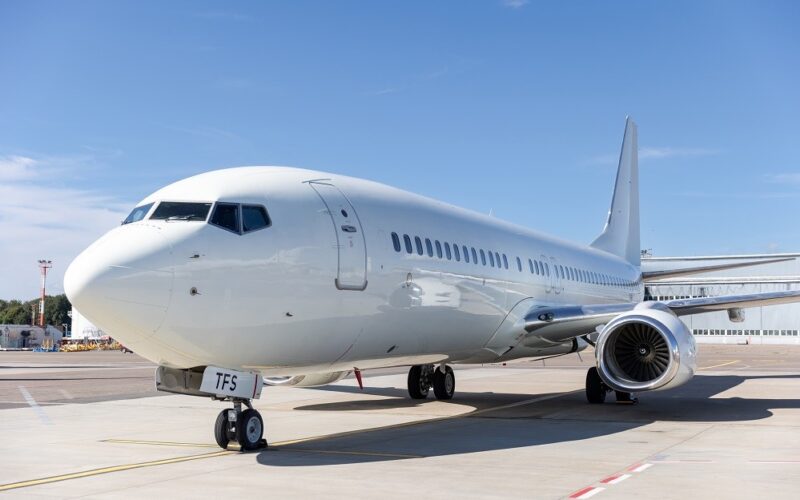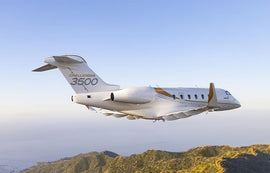
The aviation sector has seen a resurgence following the pandemic, marked by a significant increase in passenger traffic in 2023. However, this recovery has unveiled a pressing talent shortage issue, particularly concerning skilled professionals like pilots, with an estimated shortfall of 50,000 by 2025.
Sandra Diaso, Head of Human Resources at KlasJet, suggests that addressing this talent gap hinges on prioritizing individual needs and well-being. This strategy entails understanding employees' motivations and aspirations and implementing measures to cultivate a positive and fulfilling workplace environment.
In an interview, Diaso underscored the persistent demand for new talent, the integration of technology in HR practices, and the importance of maintaining a personal connection in the aviation industry.
Regarding my involvement in the aviation sector, I would first emphasize that claiming expertise in aviation is an ongoing learning process rather than a static achievement. Over the past decade, I've gained considerable experience in various roles within the industry. Initially, I served as a Training Manager, overseeing pilot and cabin crew training programs. Subsequently, I transitioned to the HR department, where I focused on recruitment and payroll management. For the last three years, I've held the position of Head of HR, overseeing both administrative tasks and flight personnel globally—a role that continually challenges me to balance responsibilities within the constraints of time.
What are some of the industry-specific obstacles you encounter in your day-to-day tasks?
Aviation operates on a global scale, making it highly susceptible to various external factors such as economic fluctuations, shifts in oil prices, geopolitical tensions, conflicts, and border closures, among other events that reverberate worldwide.
Presently, the paramount concern within the aviation sector revolves around safety. Despite initial forecasts during the COVID-19 pandemic suggesting a prolonged recovery period of 2-3 years, the industry bounced back much sooner, within a few months. Consequently, there's a sustained high demand for aircraft, flight personnel, cabin crews, and pilots. However, this heightened demand has led to a slight decline in standards as airlines prioritize quantity over quality. Thus, ensuring and enhancing safety standards remains a critical imperative.
On the other hand, opportunities abound in the 21st century. With advancements in information technology (IT) and artificial intelligence (AI), there are ample prospects to optimize daily operations, including human resources management, to an unprecedented extent. This facilitates faster work processes, heightened productivity, and an overall enhancement of quality standards.
When considering the potential applications of AI in aviation, do you envision any promising developments on the horizon?
While widespread integration of AI solutions into the aviation sector may not occur imminently due to stringent regulations, there are already notable advancements, particularly in HR practices. For instance, we've implemented an AI-powered recruitment system that has proven immensely beneficial. Upon submission of a resume by an applicant, the system autonomously generates a user account based on the provided information, significantly reducing the need for manual intervention. Furthermore, it can accurately predict key skills, qualifications, and other relevant characteristics of the applicant, streamlining the recruitment process.
What strategies do you employ to attract top-tier talent?
The labor market has undergone significant transformations, partly due to generational shifts. In response to the evolving priorities of young professionals, we have shifted our focus away from salary and toward aspects such as employer branding, work-life balance, commitment to innovation, and opportunities for rapid career advancement. Let me delve deeper into these aspects. Concerning employer branding, our emphasis lies in portraying ourselves as a dynamic and elite option while maintaining a supportive and nurturing environment. Additionally, we recognize the importance of work-life balance and actively promote the notion that career success does not necessitate burnout. Furthermore, acknowledging the eagerness of young talents for fast career progression, initiatives like our Cadet Academy play a pivotal role. This program enables us to provide qualified and ambitious individuals with the necessary support to ascend the professional ladder, encapsulated in our motto, "learn with KlasJet." Above all, building personal connections remains paramount. Investing time in face-to-face interactions throughout the training and employment journey is crucial for fostering strong bonds. Moreover, we endeavor to identify and support young talent by offering financial assistance and mentoring to facilitate their entry into the aviation industry.
How do you address the shortage of qualified pilots?
Given the persistent nature of the pilot shortage, we have proactively initiated measures to tackle this challenge head-on. Our forthcoming Cadet Academy, akin to traditional flight schools but exclusively available to our employees, serves as a strategic intervention. This initiative not only enables us to cultivate our own pool of skilled pilots but also reinforces our commitment to nurturing our workforce. Graduates of the Cadet Academy will attain Type-R certification, qualifying them to operate within our Boeing fleet. Moreover, they will have the opportunity to join our ranks as pilots, accruing invaluable experience and contributing to our team's strength. By prioritizing growth and loyalty among our employees, we are laying the groundwork for a resilient future for our airline.
How do you cultivate a positive workplace culture and enhance employee engagement?
Amid our rapid expansion—last year alone, our company grew by 221%—we remain steadfast in preserving our human touch, eschewing the impersonalization that often accompanies organizational growth. Personally knowing each team member by name, understanding their stories, and fostering open dialogue has proven effective. Additionally, we strive to meet the burgeoning demand for training and career advancement opportunities by engaging with employees directly through regular face-to-face interactions and various initiatives. These include weekly or monthly meetings and quarterly visits to different bases, where I engage with staff and address their concerns. Such efforts not only facilitate problem resolution but also foster a sense of belonging and camaraderie. Furthermore, our insider's newsletter serves as a platform for employees across departments to share their achievements, fostering inclusivity and reducing communication barriers.
How do you ensure equal opportunities and combat discrimination in the workplace?
Creating a fair and respectful environment is paramount to us. Performance takes precedence over factors such as age, gender, or race, and we underscore this through annual training sessions. With our workforce now comprising individuals from all five continents, diversity is embraced as a cornerstone value. We value the unique perspectives and contributions that individuals from diverse backgrounds bring to our organization, thereby enriching our culture of unity.
What do you anticipate for the future of HR specialists in the aviation industry?
Staying ahead of the competition necessitates proactive measures and staying abreast of industry trends and developments. As the demand for HR specialists experienced in aviation grows, there will be an increased focus on internal knowledge sharing and development. Passing down expertise to nurture talent within the organization not only creates opportunities for growth but also enhances the efficiency of HR operations.
What distinguishes KlasJet in this competitive landscape?
Our low turnover rate underscores our commitment to individualized support and development. We prioritize talent and potential during the recruitment process, ensuring alignment with our performance standards. Once onboard, we provide comprehensive support and cultivate enduring one-to-one relationships. We strive to be more than just an email address, offering informed guidance, top-notch training, and unwavering support. This personalized approach sets us apart and establishes us as a recognizable and trusted presence in the market.

